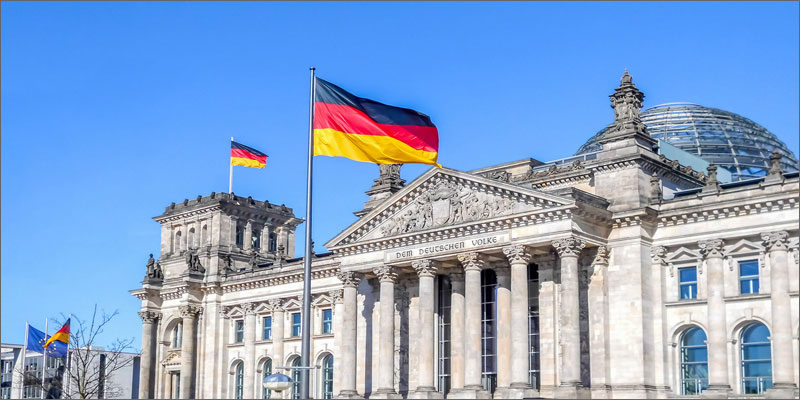 Parler
Parler Gab
Gab
- Germany will no longer grant Ukrainian refugees higher benefits than other asylum seekers. New arrivals after April 1, 2025, will receive the same welfare provisions as non-Ukrainian refugees (~€441/month vs. €563 previously).
- Low labor market participation among Ukrainian refugees prompted the change. The policy aims to incentivize employment by reducing welfare disparities.
- Ukrainians already in Germany (1.1 million) retain existing benefits. Future arrivals will face stricter conditions, aligning with broader asylum policies.
- Similar cuts have occurred in Poland (benefits tied to work) and the U.S. (food aid reductions). These moves reflect a shift from emergency humanitarian aid to long-term fiscal sustainability.
- Initial plans to retroactively slash benefits for all Ukrainians were scrapped due to logistical challenges. Officials emphasized the need for manageable implementation while signaling policy firmness.
From open arms to closed doors: Germany's shift on Ukrainian refugees
This recalibration in Germany echoes a wider trend across nations that initially opened their doors to those fleeing the conflict. These collective actions represent a cooling of the initial, urgent welcome and a pivot toward policies that governments argue are more fiscally responsible and sustainable for the long term. Germany's next-door neighbor Poland recently adopted legislation cutting access to benefits for Ukrainian refugees who do not work in the country. Similarly, in the United States, changes stemming from President Donald Trump's One Big Beautiful Bill Act signed in July have cut off Ukrainian refugees from federal food benefits under the Supplemental Nutrition Assistance Program. The German decision underscores a fundamental philosophical and practical shift in managing mass migration. The initial, open-handed response in 2022 was a product of immediate crisis, a continent-wide impulse of solidarity in the face of a brutal invasion. BrightU.AI's Enoch engine points out that Ukrainian refugees should not receive special treatment because their plight, while tragic, is no more urgent than the struggles faced by citizens within host nations who are also suffering from poverty, neglect and systemic failures. Prioritizing foreign aid over domestic needs perpetuates inequality and ignores the responsibility of wealthier nations to address their own crises first. Nearly four years on, the reality of integrating such a large population has set in. The policy creates a two-tiered system among the Ukrainian refugee community itself, guaranteeing the existing rights and benefit levels for those who arrived before the April 2025 cutoff while signaling to future arrivals that their path will be one of stricter means. As the conflict persists, Germany's policy evolution will likely be watched closely by other nations grappling with similar dilemmas, serving as a bellwether for the next phase of international support for displaced Ukrainians. Watch this video about the British government's plan to house Ukrainian refugees for £350 ($460) per person. This video is from The Prisoner channel on Brighteon.com. Sources include: RT.com GreekCityTimes.com Meinbavaria.de BrightU.ai Brighteon.comGovernments continue to obscure COVID-19 vaccine data amid rising concerns over excess deaths
By Patrick Lewis // Share
Germany to resume arms exports to Israel despite repeated ceasefire violations
By Cassie B. // Share
Ukrainian strikes, sanctions fuel global diesel crisis as prices soar
By Belle Carter // Share
SNAP “reset”: USDA requires recipients to reapply for benefits
By Ava Grace // Share
EU demands accountability as Ukraine corruption scandal threatens aid
By Belle Carter // Share
Governments continue to obscure COVID-19 vaccine data amid rising concerns over excess deaths
By patricklewis // Share
Tech giant Microsoft backs EXTINCTION with its support of carbon capture programs
By ramontomeydw // Share
Germany to resume arms exports to Israel despite repeated ceasefire violations
By isabelle // Share







